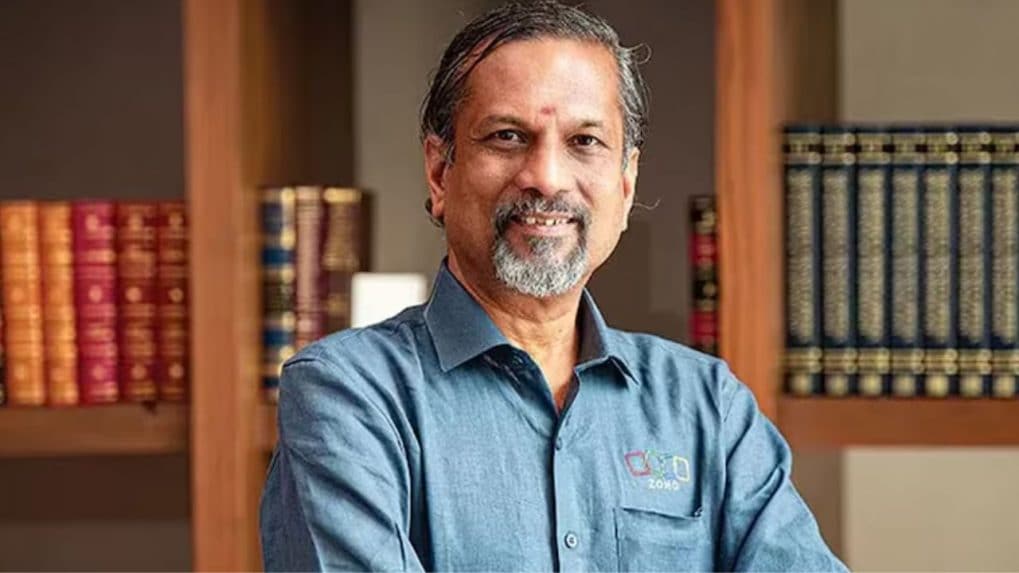Advertising
From Pink Slips to Silent Sidelining: Inside adland’s layoff and anxiety crisis

The push for technological self-reliance (Swadeshi) is not just a government mandate but a critical matter of national conviction, asserts Sridhar Vembu, Founder and Chief Scientist of Zoho Corp. In an interview with Moneycontrol, Vembu stressed that India must urgently build homegrown capabilities to counter a global environment where technology is increasingly used as a geopolitical "weapon."
Vembu, who has stepped back from the CEO role to dedicate approximately 70% of his time to code and patent filing as Chief Scientist, is spearheading Zoho's contribution to this movement, particularly with the messaging platform Arattai.
Vembu linked the growing Swadeshi sentiment to the harsh realities of global geopolitics, arguing that dependence leaves a sovereign nation vulnerable.
“For us, it’s a matter of conviction: India must be self-reliant in technology and able to trade on equal terms. What we don’t build we should be able to buy. Products are sold to us without being weaponised against us. That’s an unfortunate reality where countries don’t just sell us technology, they also dictate terms on what you can and cannot do. It shouldn’t be acceptable to any sovereign nation, including India.”
He noted that the awareness is "durable" and spreading across government, citizens, and business leaders, driven by the realization that "Technology has become pervasive in the last 25 years and is increasingly used as weapons in geopolitics."
Zoho's messaging platform, Arattai, which launched in 2021, has gained new momentum from the national self-reliance drive. Vembu stated the company's commitment to the product is long-term, regardless of current public attention.
“Even if this moment passes, a future moment will arise where this technology is needed, and we’ll be ready. That is what we have been doing all along.”
Arattai, he explained, is internally funded through its commercial offerings, leveraging technology already in use in Zoho’s B2B product, Cliq. The app is accelerating its development, with end-to-end encryption for text slated to roll out in the next couple of weeks—ahead of its initially planned mid-November timeline.
The vision for Arattai is to make it a "reliable, daily companion" with integrations for government and banking services.
Addressing the future of Artificial Intelligence (AI) in India, Vembu raised serious concerns about the weaponization of critical hardware, specifically GPUs, which are essential for training AI models.
“AI requires a multi-pronged approach. We need to build domestic technology, but GPUs are expensive and restricted, which is a risk. That is the weaponisation I spoke about. An Indian company or even any Indian organisation trying to buy GPUs is subject to a quota.”
He urged the government to ensure a fair playing field for domestic talent, advocating for stronger regulations on foreign firms:
“The government could do something useful. If something is based in India, they have to make sure that they comply with the Indian law and the law should require that IP generated in India be registered in India and taxed locally.”
Zoho itself is pursuing a multi-model approach to AI, building both a large 7 billion parameter model and a highly efficient 70 million parameter model. Vembu believes smaller models and edge intelligence (AI on the device) are the "sweet spot" for India, offering cost-effectiveness and mitigating the severe power and water demands of massive data centers.
Vembu's strongest call was for the reclamation of a patriotic spirit among India’s educated elite, which he views as the fundamental basis for all national development.
“We need, particularly among our educated elite, a sense that we belong to this nation. That patriotic spirit is essential. If you look at China, Japan, or Korea, they developed because they had that spirit. Without it, all these discussions become meaningless.”
He stressed that the mindset of viewing one's location as a mere choice—a "global citizen" attitude—is detrimental.
“If my location is merely a choice, like deciding which color shirt to wear, I can be here or there, it doesn’t matter, then that mindset is not conducive to development here... That attitude must change.”
He linked this spirit directly to Zoho's success: “The reason Zoho exists is not because I’m any kind of special genius. It’s because our average employee feels that national spirit, that we have to build for this nation, and in this nation.”
Vembu concluded that India must develop and own key technologies to achieve trade symmetry and avoid the "misguided" advice of Western-trained economists who failed to understand the strategic implications of trade.
From purpose-driven work and narrative-rich brand films to AI-enabled ideas and creator-led collaborations, the awards reflect the full spectrum of modern creativity.
Read MoreLooking ahead to the close of 2025 and into 2026, Sorrell sees technology platforms as the clear winners. He described them as “nation states in their own right”, with market capitalisations that exceed the GDPs of many countries.